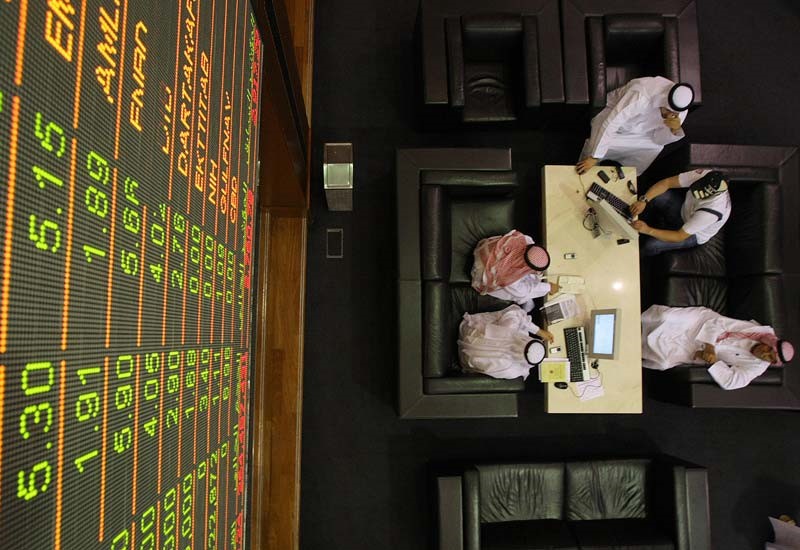If one looks at a list of the world’s largest Sovereign Wealth Funds (SWFs), the dominance of the Muslim world is clear. Any list of the top 20 or 30 SWFs will have at least half of the SWFs originating from Muslim countries. Of the World’s SWFs, 41% are from OIC Countries. As at August last year; SWFs from OIC member countries accounted for about US$3 trillion or about 44% of total SWF asset under management. This is substantial by any measure. Yet, despite this apparent financial clout, the capital markets of the Muslim world remain infantile. It is obvious that this SWF wealth is not being put to use within the Islamic world. Here’s the evidence. For a start, despite the dominance of Muslim SWFs, there isn’t a single city from the Muslim world that falls within the Global Financial Centre’s Index of top twenty financial center’s of the world, for 2013. Not even Dubai, Istanbul or Kuala Lumpur. Next, if we examine the market capitalization of stock markets of the Islamic world, the underdevelopment is glaring. The table below shows the Market Capitalization of the 5 largest stock markets of the Muslim world, compared to the 5 largest Capitalized stocks. Notice that a single company, APPLE has a market capitalization larger than that of the largest stock market of the Muslim World, Malaysia.

There are two things that jump out of this table. First, stock markets of the Muslim world are puny by global standards. Second; given that Muslim nations dominate the league of SWFs, it also points at the lack of intermediation within the Muslim world. It is quite clear that Muslim wealth is not being invested within the Muslim world.
The third evidence of the absence of capital market intermediation comes from a 2013 report by the Mckinsey Global Institute. Studying Asset Allocation by Households in different regions of the world the study found that of the estimated US$2.7 trillion aggregate household wealth within MENA, two thirds, were held as cash or short-term deposits and a mere 18% invested in equities. Looking at market capitalization numbers above, the minimal amount allocated to equities by MENA households may be true across the Muslim world.
The final piece of evidence is the increased number of companies from OIC countries that resort to ADRs/GDRs (American Depository Receipts or Global depository receipts). While ADRs are means by which foreign listed companies can seek to tap equity capital from the New York stock exchange, GDRs are for the London or Luxemburg exchanges. From a mere 5 companies in 1993, there are now about 150 companies from the Muslim world that had issued ADRs, GDRs. Going by the issuance requirements, these are probably the bluest of blue chip companies of the Muslim world. They have had to resort to ADRs/GDRs simply because their domestic markets were too shallow for their needs.
So, the irony is that, even though the Muslim world has impressive financial clout, that clout has not been put to meaningful use. This begs the question, why not? Part of it is the circular chicken or egg question. Unless the large SWFs invest in these markets, they will remain small, and given their current size, the SWFs cannot invest without moving the markets and incurring huge market impact costs. The lack of technology, expertise or infrastructure cannot be the case, for these can be bought or hired. So, what exactly is the missing ingredient? It is really the ‘soft’ issue, issues of governance, accountability, transparency, rule of law and the like. Muslim countries, including the major ones perform poorly on this. When company accounts cannot be trusted, when rule of law is not always upheld, when corruption and politics get in the way of business decisions, when enforcement of contracts may be subjective and when rules and policies can turn on a whim, trust cannot possibly take root. And where trust and rule compliance is missing, capital markets cannot function optimally. The net result is disintermediation and infantile markets. By most measures of market development, capital markets of the Muslim world show serious lag. Yet, Muslim governments by and large appear to show little interest in capital market development. These has serious consequences. Aside from continued reliance on the west for financing, which currently, recycles investments from Muslim SWFs to poorer Muslim nations, there are several other problems. First, stunted capital markets stifle entrepreneurship. Without small enterprises, an industrial base is difficult to build. Inability to harness savings into business investments and decent returns would mean leakages and capital outflows. Economies cannot function well, let alone at optimal levels. Finally and perhaps most damaging of all, is the fact that underdeveloped capital markets mean higher cost of capital for firms. A direct consequence of which is national competitiveness.
*This article first appeared in the Turkish-language magazine, Yeni Safak
By Prof. Dr. Obiyathulla Ismath Bacha, Professor of Finance


